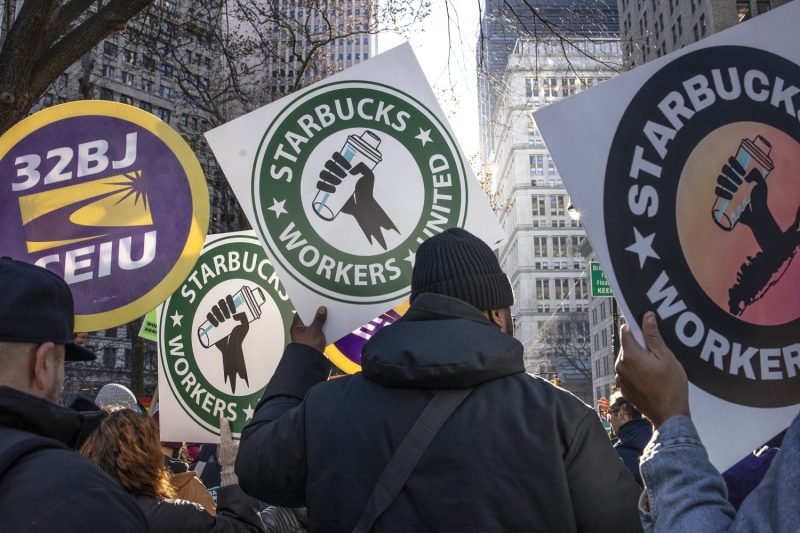In a recent move that has captured the attention of both Starbucks employees and observers of the labor landscape, new CEO Brian Niccol has made a clear commitment to working with unions as discussions progress. This announcement marks a significant departure from the company’s historical stance on labor relations and has the potential to reshape the dynamics between Starbucks and its workforce.
Niccol’s willingness to engage in constructive dialogue with unions signifies a profound shift in the company’s approach to labor issues. Historically, Starbucks has been known for its strict stance against unionization efforts, opting instead to foster a company culture based on direct communication channels between management and employees. This approach has helped the company develop a strong corporate identity centered on values such as transparency and open collaboration.
However, as the paradigms of labor relations evolve and employees increasingly demand a seat at the decision-making table, Starbucks’ traditional model has faced growing scrutiny. In recent years, the company has experienced several high-profile disputes with workers over issues such as wages, working conditions, and benefits. These conflicts have exposed the limitations of Starbucks’ communication model and highlighted the need for a more inclusive approach to labor relations.
Niccol’s decision to embrace unions represents a proactive effort to address these challenges and foster a more harmonious relationship between Starbucks and its employees. By engaging in dialogue with unions and acknowledging the collective voice of workers, the new CEO is signaling a commitment to building a more equitable and sustainable workplace environment. This shift in approach holds the potential to enhance employee morale, strengthen the company’s reputation, and drive long-term business success.
As talks between Starbucks and unions advance, it will be crucial for both parties to maintain a spirit of cooperation and mutual respect. Building trust and fostering open communication will be essential to navigating the complexities of labor relations and addressing the diverse needs of Starbucks’ workforce. By adopting a collaborative approach grounded in empathy and understanding, Starbucks and its employees can work together to create a more inclusive and supportive workplace culture.
In conclusion, Brian Niccol’s commitment to working with unions marks a significant turning point in Starbucks’ labor relations strategy. By embracing a more inclusive approach to dialogue and collaboration, the company has the opportunity to redefine its relationship with employees and build a stronger foundation for future growth. As discussions progress and agreements are reached, Starbucks has the potential to emerge as a leader in fostering positive and productive labor relations within the industry.

